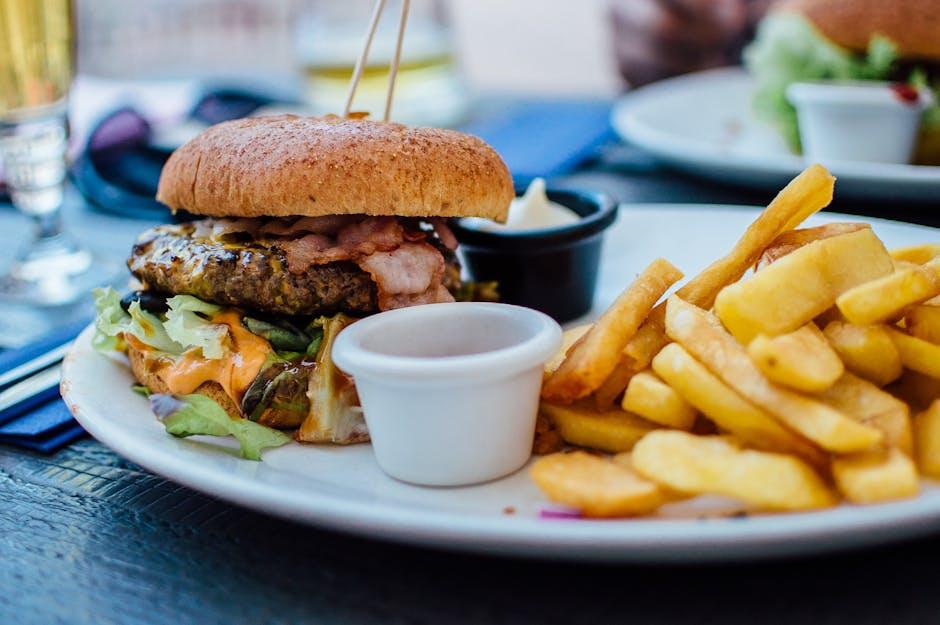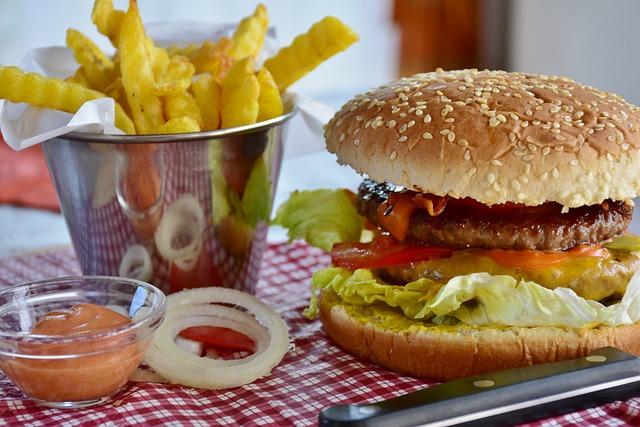In a world where fast food chains and convenience snacks are just a stone’s throw away, indulging in junk food has become almost a rite of passage. Whether it’s the siren call of crispy fries, the irresistible allure of a cheesy slice, or the sugary rush of a candy bar, these guilty pleasures are hard to resist. But as the last crumbs are brushed away and the wrappers crumpled, a question lingers: Does our body need a detox after such indulgence? This article delves into the concept of detoxing after consuming junk food, exploring the science, myths, and realities behind this popular notion. Join us as we embark on a journey to uncover whether our bodies truly require a reset or if it’s all just a tempting illusion.
Understanding Detox: Separating Myths from Reality
In the age of quick fixes and health fads, the concept of detoxing often pops up as a popular remedy after indulging in junk food. While the idea of purging your body of toxins can be appealing, it’s essential to discern myths from reality. Your body is naturally equipped with a sophisticated detoxification system involving the liver, kidneys, and digestive tract. Here are some points to consider:
- Natural Processes: Your liver is a powerhouse, processing and eliminating harmful substances. It doesn’t require special teas or cleanses to function effectively.
- Hydration and Nutrition: Drinking water, consuming fiber-rich foods, and maintaining a balanced diet support your body’s natural detox mechanisms.
- Misleading Marketing: Many detox products are marketed with exaggerated claims and lack scientific backing.
While a balanced diet and healthy lifestyle are crucial, remember that the human body is resilient and capable of handling the occasional indulgence. Instead of quick detox fixes, focus on consistent, healthy habits to support your body’s ongoing cleansing processes.

The Impact of Junk Food on Your Bodys Natural Detox System
When you indulge in your favorite fast food or sugary treats, it’s easy to overlook how these foods can affect your body’s ability to naturally detoxify. Your liver, kidneys, and intestines, which are the body’s primary detox organs, can become overwhelmed by the high levels of unhealthy fats, sugars, and additives found in junk food. Over time, this can lead to a build-up of toxins and make these vital organs work harder to maintain balance.
- Liver: Processes and breaks down toxins. High sugar intake can lead to fat accumulation in the liver, impeding its function.
- Kidneys: Filter waste and excess substances. Excessive salt from junk food can strain kidney function.
- Intestines: Aid in digestion and waste removal. Processed foods can alter gut flora, affecting detox efficiency.
In the face of these challenges, supporting your body’s natural detox systems doesn’t require drastic measures. Simple lifestyle changes, such as incorporating more whole foods, staying hydrated, and engaging in regular physical activity, can help restore balance and promote optimal functioning of these critical systems.

Nutritional Strategies to Support Your Body Post-Junk Food
After indulging in junk food, it’s important to shift focus towards nourishing your body with wholesome nutrients. Instead of drastic measures, consider incorporating a few simple strategies that can gently guide your body back to balance. Hydration is key; start by drinking plenty of water to help flush out excess sodium and sugar. Herbal teas, such as ginger or peppermint, can also support digestion and alleviate any discomfort.
Emphasize whole foods rich in vitamins and minerals. Leafy greens, such as spinach and kale, are excellent for replenishing essential nutrients. Fruits, especially those high in fiber like apples and berries, can aid in digestion and provide a natural sweetness to satisfy cravings. Lean proteins like chicken, fish, or legumes help repair tissues and maintain energy levels. incorporating probiotic-rich foods like yogurt or fermented vegetables can support gut health, which may be affected by processed foods. By gradually reintroducing these nourishing elements, you can support your body’s natural ability to recover and thrive.

Incorporating Mindful Eating for Long-Term Health
- Begin by savoring each bite to fully appreciate the flavors and textures. This not only enhances your eating experience but also helps you recognize when you’re genuinely satisfied.
- Engage all your senses during meals. Notice the colors, aromas, and even the sounds of your food as you chew. This holistic approach can transform a rushed meal into a calming ritual.
- Pause between bites. This simple act can prevent overeating and give your brain time to register fullness, promoting better digestion and nutrient absorption.
In the long run, this practice encourages a healthier relationship with food, reducing the reliance on extreme measures like detoxes. Mindful eating can become a sustainable part of your lifestyle, guiding you to make balanced choices that support your overall well-being. By focusing on the quality of what you eat and being present during meals, you nurture both your body and mind, creating a foundation for lasting health.
Insights and Conclusions
In the grand tapestry of our dietary choices, indulging in junk food is a thread that many of us weave into our lives. The question of whether detoxing is necessary after such indulgences is as much about understanding our bodies as it is about the narratives we choose to embrace. As we navigate the spectrum of nutrition, it’s crucial to remember that our bodies are remarkably resilient and adept at self-regulation. The journey to balance is not solely defined by the extremes of detoxes or indulgences but by a mindful approach to nourishment.
Ultimately, the choice to detox should be personal, informed, and aligned with one’s own health goals. Whether you choose to sip on green smoothies or simply return to wholesome meals, the key is to listen to your body and nurture it with care. As we close this chapter, let us savor the knowledge that our well-being is a continuous journey, one that thrives on balance, moderation, and a little bit of self-compassion. So, here’s to making choices that resonate with our own unique paths, and to understanding that every meal is an opportunity to nourish not just our bodies, but our lives.




